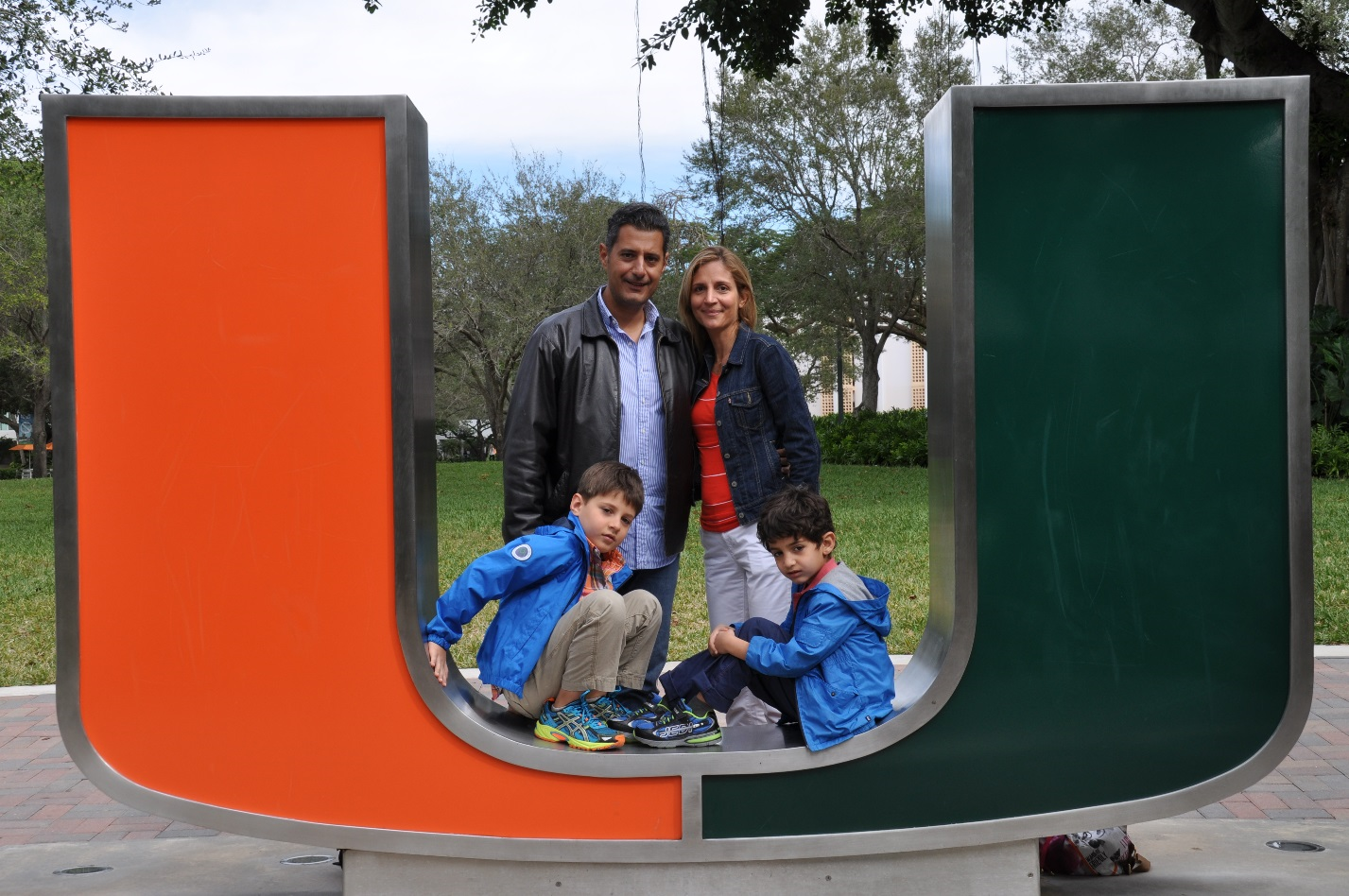The private aerospace company is slated to send the first “commercial astronauts” into space. College of Arts & Sciences alumna Elisa Mallis, B.S. ’95, recently visited the University of Miami campus with her husband and two sons after more than 20 years since her graduation.
Why make such a far trek that no civilian in history has ever made? Simply put, Mallis never felt like she belonged to any one place, so space felt like a natural way to strip down cultures and languages and just be a human. Having lived in nearly 16 countries so far, Mallis has a case of un-identity. “Growing up between two countries (spending 6 months in one and 6 months in the other throughout my childhood) my experience was one of not completely belonging/fitting in at one ‘home town’ or another,” she said in a Q&A with Parabolic Arc. “As I searched far and wide for my own true identity, I realised that the most important part of it was in being human… a Human Being.”
Mallis’s post-graduate career path has led her to work for companies all over the world, one of which brought her to lead Global Mindset workshops for multi-national companies in Asia. Workshop exercises are designed to help business managers and leaders think and make decisions from a global, all-encompassing perspective. “If we want to secure the well-being of the earth and our species, we must radically shift our perspective to see the world as a whole, rather than a collection of separate entities,” she said. “My purpose for going to space is to accelerate the mindset shift that will push humanity forward by making the earth from space perspective accessible to everyone.”
XCOR aims to open the market for commercial space and rid the notion that space is the elusive, exclusive domain of governments and agencies like NASA. Those like Mallis, who are interested in civilian space exploration, are known as XCOR Space Expedition Founders. As a founder, Mallis will go through rigorous preparations and testing prior to spaceflight, which is set to take place sometime in 2017.
Among the preparations, which include G-Force training and a myriad of medical and physical tests, Mallis appreciates the immense safety precautions that are placed into the engineering, field testing, and training of the expedition. “As a mother of two children, safety is number one for me,” Mallis said in an XCOR interview with fellow founders. “It was reassuring to understand the real passion and practicality of the safety culture.”
Once the extensive preparations are complete, Mallis will depart Earth in an XCOR Lynx craft. After a horizontal take-off (much like an airplane), the spacecraft will reach Mach 3 for three minutes, breaking the sound barrier within the first minute, before shutting off its engines. At the point of engine shut-off, founders will experience weightlessness, and will have officially entered space, where the craft will remain for six minutes. On the return to Earth, the Lynx will pull four Gs for 20 seconds before settling into a 40-minute glide to the surface. Upon re-entry, founders will receive astronaut wings to complete the journey.
“I think the re-entry to earth will be the most challenging because of the amount of physical pressure that we will experience on our body,” she said. “As a woman I am encouraged by the fact that child birth is also something I had never experienced before (at least the first time I went through it), and something quite challenging physically, and I got through that just fine.”
See video of Mallis’s training.
Mallis and her family currently live in Beijing, China where she is the Head of Executive Development and Coaching at Management Development Service.







